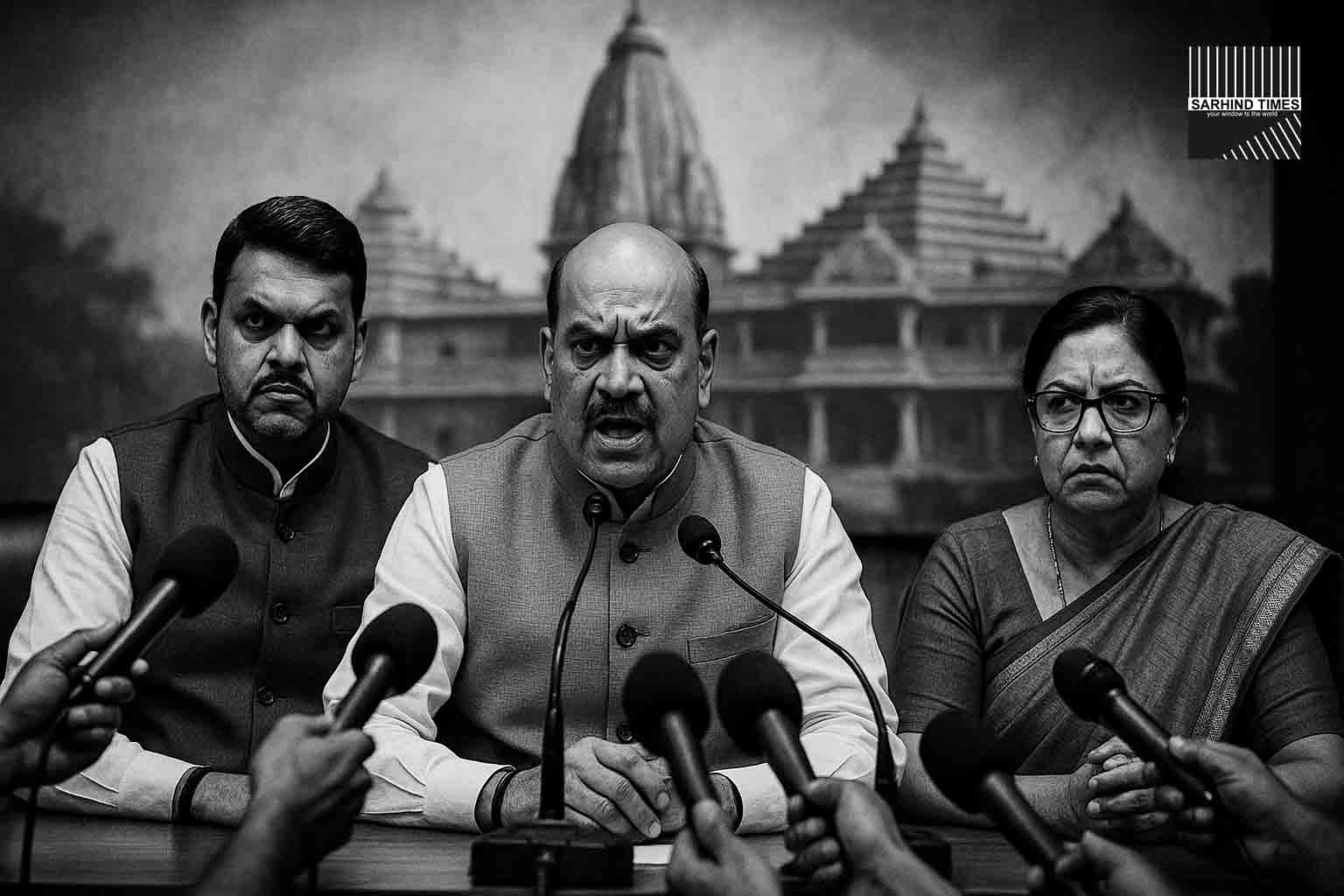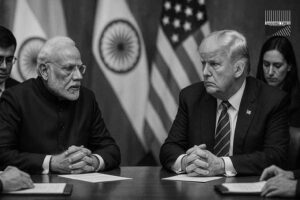As India enters a crucial electoral season, politics is again turning to symbolism, identity, and religion. A single remark by Congress MP Manish Tewari has snowballed into a political storm, offering the BJP fresh ammunition to accuse its rival of nurturing an “anti-temple narrative.” For the ruling party, this is more than just a soundbite — it is an opportunity to reinforce its central plank of faith, nationalism, and development ahead of the state polls. For Congress, however, it is yet another test of message discipline, as the BJP’s machinery seeks to portray every deviation as proof of ideological unease with cultural and religious symbols.
This article unpacks the controversy, the reactions, and the broader implications for India’s electoral strategies in the coming months.
The Spark: What Did Manish Tewari Say?
Manish Tewari, senior Congress MP and spokesperson, recently made comments questioning what he described as the “politicization of temples” during election campaigns. He argued that political parties must “focus on governance, jobs, education, and inflation rather than orchestrating religious spectacles.”
Although Tewari clarified that his remarks were directed at the instrumental use of temples in politics, BJP leaders immediately seized upon the comment. They claimed that his statement revealed Congress’s “discomfort with India’s civilizational ethos” and amounted to an “anti-temple stance.”
BJP’s Offensive: A Familiar Script with Fresh Energy
BJP leaders across states quickly went into amplification mode.
- Party Narrative: “Congress has repeatedly shown that it cannot accept the role of temples and faith in our national identity,” declared BJP spokespersons at press conferences.
- Election Context: Senior BJP strategists emphasized that “development and devotion” are not contradictory but complementary, with temple-building and faith-based tourism boosting infrastructure, jobs, and local economies.
- Urban Voter Outreach: The remarks were carefully designed to appeal to middle-class and urban Hindu voters who see temple construction as a blend of heritage and economic opportunity.
BJP social media handles also highlighted previous Congress controversies — such as debates on the Ram Mandir or opposition to certain faith-linked events — to reinforce the narrative that the opposition is “out of touch with popular sentiment.”
Congress’s Response: Damage Control or Defiance?
Congress was quick to counter the BJP’s framing. Leaders accused the ruling party of “deliberately twisting” Tewari’s words to manufacture outrage.
- Focus on Issues: Congress stressed that Tewari was merely urging attention to jobs, price rise, and education, which are “real concerns of the people.”
- Nationalist Credibility: Some Congress leaders highlighted the party’s legacy of temple restorations, festivals, and cultural engagement, pushing back against the charge of being “anti-temple.”
- Balancing Act: Privately, however, strategists admitted that remarks on religious symbolism are difficult to defend in today’s polarized climate.
This tension reflects the Congress’s broader struggle: how to critique the BJP’s use of faith in politics without appearing dismissive of religion itself.
Why This Matters: Symbolism in Indian Politics
India’s electoral landscape has long been shaped by the intersection of identity and governance. While economic concerns dominate survey responses, cultural and religious symbolism often decides campaign atmospherics.
- Festival Season: As elections overlap with festivals like Navratri, Dussehra, and Diwali, political leaders’ temple visits receive disproportionate media coverage.
- Identity Politics: For BJP, temples symbolize not only faith but also national pride and majority identity.
- Congress’s Dilemma: For Congress, openly embracing such symbolism risks alienating secular voters, while rejecting it risks appearing “anti-faith.”
The BJP’s quick offensive demonstrates how a single comment can be weaponized to paint Congress as disconnected from mainstream sentiment.
Media & Social Media Dynamics
Television channels quickly picked up the story, framing it as a “temple politics debate.” Hashtags like #TemplePolitics and #ManishTewari trended on X (Twitter). BJP IT cell members shared memes contrasting images of temples with inflation graphs, suggesting Congress “chooses the wrong battles.”
Meanwhile, Congress supporters attempted to shift the conversation to unemployment and rising fuel prices, but engagement was visibly lower compared to the BJP’s cultural pitch.
Analysts’ Take: The Bigger Picture
Political analysts suggest that this controversy is not just about temples but about sharpening contrasts between BJP and Congress:
- Narrative Control: BJP wants to ensure that faith remains at the center of the conversation, not inflation or unemployment.
- Congress’s Challenge: Every time Congress raises economic issues, BJP reframes the debate around nationalism and identity.
- Urban Voter Strategy: The controversy plays especially well in urban and semi-urban constituencies, where faith-linked development projects (temple corridors, infrastructure upgrades) intersect with middle-class pride.
Implications for Upcoming Elections
- Manifesto Design: Expect both parties to fine-tune their manifestos, with BJP offering “faith-driven development” promises, while Congress doubles down on youth employment and welfare.
- Campaign Strategy: BJP leaders will likely increase temple visits and religious outreach. Congress may cautiously mirror this by highlighting cultural inclusivity without sounding like an imitator.
- Voter Behavior: First-time voters and urban commuters could become decisive, as both parties craft micro-pledges tailored to everyday concerns.
Conclusion
The controversy around Manish Tewari’s remarks may seem minor in isolation, but in India’s hyper-competitive political ecosystem, such moments shape narratives. BJP’s ability to amplify and embed the “anti-temple” charge into its broader campaign messaging reflects its organizational discipline. For Congress, the challenge is not merely defending one leader’s words but articulating a coherent, emotionally resonant alternative that addresses both material needs and cultural aspirations.
As election campaigns intensify, expect temple politics to remain a recurring theme — not just in speeches but also in social media trends, manifestos, and voter mobilization strategies.
#Politics #BJP #Congress #Elections #IndiaNews #CampaignTrail #TempleTown #Voters




+ There are no comments
Add yours